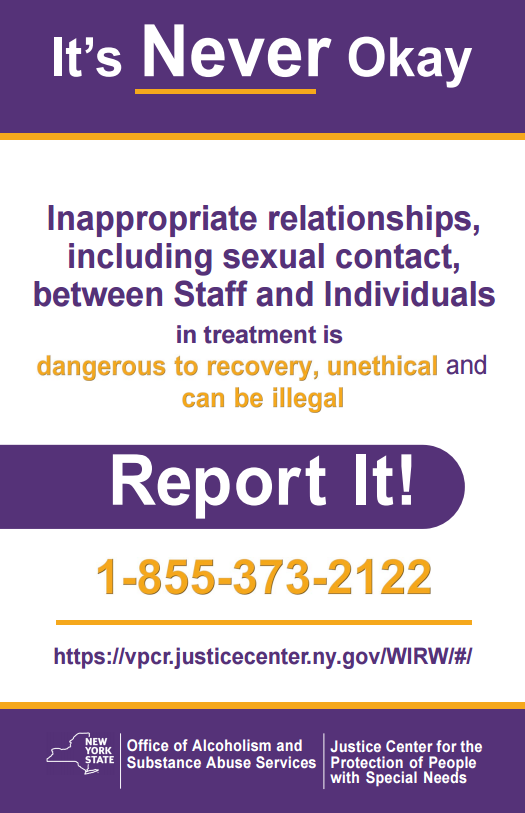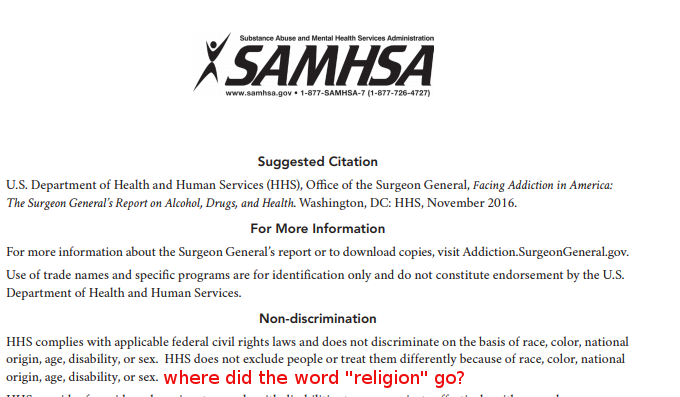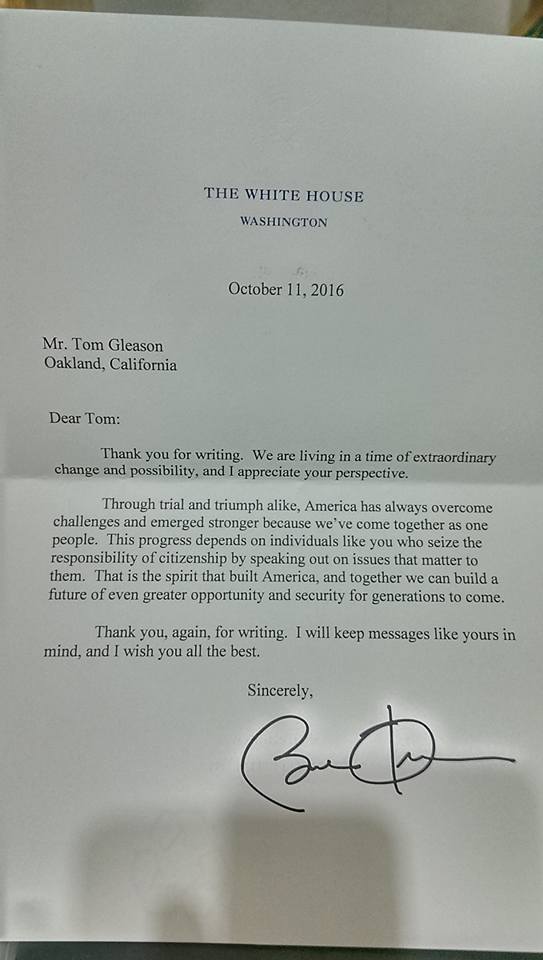Someone is Lying and it Ain’t Me
Faced with complete contradiction, consider how you might determine who’s lying:
Client v. Addiction Specialist
“Would he (asking the other) tell me that rejecting treatment leads to certain death?”
“Would he (asking the other) tell me that working the treatment (steps) will lead to the Promises?”
You can make sense of the solution to this riddle by considering how quickly AA members will assign false words and experiences to others based on their own lies: “12-stepper Jim said I’m doing well.” “You’re DONE with Jim’s treatment? Good, I’m glad treatment with Jim is working out”, “Client A is not credible because she admitted to only sometimes being honest with self and others on worksheet connected to treatment (client is a LIAR)”. “It has saved millions. The alternative is jails, institutions and — bum bum bummm — Certain Death!”
The argument that someone must be lying also raises some interesting legal considerations and potential misjudgements, so for the New York State Supreme court to conclude that rehab clients are not credible (in ‘denial’, not honest with self…), especially based on ‘evidence’ of defective character manufactured in the course of typical 12-step treatment, in relation to the assumption of rigorous honesty among 12-step treatment providers, should probably be revisited.
Samsaratan Counseling
I filed a complaint with the Justice Center which was formed to collect complaints against OASAS and the NYS Education Department and other organizations that cannot seem to manage complaints. I filed it against the NYS Education Department Office of Professions for basically refusing to investigate ‘the AA thing’ (as the investigator said…’we don’t look into that‘), and that the complete refusal to even acknowledge this complaint had led me to be hospitalized for suicidal ideation multiple times over the past few years, each time after having my complaint ‘officially’ disregarded. Thursday morning at about 5:30 am the Oakland Police called my phone and told me to meet them at my door. About eight cops told me that someone told them I was dangerous to myself, but could not tell me who did. I told them about my complaint and that i was not going to kill myself, that this was just yet another complaint that I have been trying to get someone to acknowledge for about 2.5 years now… but they proceeded to handcuff me, put me into a police car until an ambulance came, then drove me to a psychiatric hospital. I told them I did not agree to go. So, I was there for the last five days, where I was again expected to enroll in a AA treatment center called Cherry Hill in the AHS system. I refused. Today I was discharged, and found my way home with no shoes, keys or wallet. I’ll be waiting for the ~$30k bill that MediCal will probably be paying.
Here’s an investigative report on the hospital I was involuntary sent to last week (yes I slept on that floor in that room, but I did have a cot):
Then I got a letter stating that my condition as described by the hospital did not merit inpatient treatment. So that’s another mystery.
It seems that even if the psychiatric doctors no longer think I’m insane, somebody (probably someone in New York State government or from Samaritan Counseling Center, or both) still wants me to be ‘treated’ instead of acknowledging my complaint.
I had already gone bankrupt the year before for an about 7 day stay at this John George place and getting this bill for $4440/day (the first two of which I did sleep on that floor). 
Rehab Fraud and Abuse Driven by 12-Step Culture
Anyone v. NYS Office of Alcoholism and Substance Abuse Services (OASAS 13-Stepping)
Amos Doctor v. OASAS (PDF) (Doctor appears to be the surname)
Here is a case of sexual harassment by an OASAS counselor where the AA curriculum of admitting ‘honesty’ problems was used to completely undermine the complaint.
“At the conclusion of that hearing, the arbitrator dismissed all four charges and specifications against petitioner finding, among other things, that the testimony offered by client A and the intern was not credible. Specifically, the arbitrator noted that client A admitted that she had “feelings” for petitioner and that she had acknowledged – on a self-assessment form completed in connection with her treatment – that she was only sometimes honest with herself and others.”
(Client C was also found to have admitted she was ‘honest with herself and others only some of the time’). The intern was also found to be ‘not credible’.
So, after being told to depend on a sober person for her very life, and then being told that the reason she doesn’t recover is because she has problems with being honest, her complaint is thrown out because she had ‘feelings’ for her counselor and had admitted as part of her 12-step ‘work’ that anything she says might be a lie.
This is How it Works. New York State doesn’t look into the ‘AA thing’. But actually, my whole blog is about this exact dynamic: client develops feelings for the person supposedly saving his/her life, counselor gets off on it, client gets confused by being constantly described as powerless, insane, defective, selfish and dishonest, then counselor denies everything and says addicts just make shit up out of nowhere for no comprehensible reason.
So, I guess it’s only OK to fool around with clients if the client has admitted on paper that s/he is “constitutionally incapable of being honest”, according to New York State Supreme Court. Doing the mandatory AA homework is equivalent to signing all your rights away. In AA, ‘honesty’ is directly correlated to ‘sobriety’, and people who are not helped by the program (or the ‘treatment’ providers) are encouraged to admit problems with ‘honesty’ and confess their thoughts and feelings, which are then inevitably used against them.
‘Those who do not recover are people who cannot or will not completely give themselves to this simple program, usually men and women who are constitutionally incapable of being honest with themselves. There are such unfortunates.’

Bludgeoning people into AA with a 2×4 (between the eyes repeatedly)
Here is the former Drug Czar Robert DuPont. At 6:30 you can hear about the ‘between the eyes repeatedly with a 2×4′ method of getting professionals into ‘Recovery’, which got Talbott sued (successfully) for false imprisonment and medical malpractice in 1999. DuPont was also a consultant for the Straight, Inc. program that was shut down by multiple lawsuits alleging abuse and malpractice, several of which were successful. He is part of a long history of this abusive industry.
The ARISE Intervention by Judith Landau – My review
The ARISE method misrepresents itself. It IS about coercion. It is an extended Johnson intervention that ‘gradually escalates’ with ‘serious consequences’ for not entering 12-step treatment. The contracts in the book Invitational Intervention involve immediate inpatient rehab if any drug is used, mandatory drug tests, and ‘natural consequences’ (which are not actually natural consequences, because it is not natural to face consequences for not wanting intensive 12-step facilitation.
Here are articles I’ve written on my experience of the ARISE intervention, which involved using my family and trusted therapists to continually re-leverage me into meetings and treatment that I was already very familiar with and had rejected.
Here is something interesting: AA and rehab often say that you have to WANT it for it to work. The ARISE method is, like EAPs, PHPs and Drug Courts, coercive. If you read the book, you will find that they are lying when they say it is not coercive, because the method actually says that self-referrals don’t work — that coercion is part of the process. Also, their success rates (the 83% quoted) involve measuring success at getting people INTO treatment, a fact that is easily lost on people who assume the treatment will actually be helpful. Also note that they will try to bring your whole family into the 12-step cult and treatment because it’s a so-called ‘family disease’.
Summary: false advertisement, easily verified bait-and-switch. It is more a system for addiction specialists to make money off of rehab referrals.
New York State Education Department Investigator Admits Policy of Willful Negligence
Investigator Patrick Flynn told me on the phone when he was closing out my case that 1. My therapist denied everything so it was “he said she said” and 2. ‘We don’t look into the AA thing’. So, after three attempts at getting New York State to acknowledge a very serious problem with two-hatting therapists over the course of two years, this has always been and is still their official position, regardless of how it is clearly willful negligence.
New York State should, of course, acknowledge facts like:
– Treatment coercion is illegal. When networks of people are coached to impose ‘consequences’ for not entering treatment, it’s still coercion even if you say it’s not. It may even be a form of insurance fraud.
– Religious indoctrination into AA is a First Amendment violation, as well as a bad treatment for most conditions. It is ineffective and should not be protected from malpractice and fraud complaints.
– The 12-step treatment industry is psychologically abusive and extortionist in its approach. This is verifiable and not up for debate. ‘Treatment’ is life-and-death necessity until it fails or it’s questioned, and then suddenly “AA isn’t treatment”.
Finally, other abuses are easily hidden under the guise of ‘help’ in a 12-step organization, and also often arise out of the confusion that 12-step programs create. It is not necessary to lie to your clients, seduce them, or punish them to ‘motivate change’. The ‘unforced forces’ of better arguments have their own power.
In my opinion, it should be standard practice for New York State Education Department to inform therapists accused of 12-step coercion that this is not acceptable for a variety of reasons and they are being warned and will face consequences to their license status if new complaints arise. It’s the f*cking EDUCATION department; they need to be setting some standards for basic knowledge about treatment options.
AA Service Manual Page 69
Sounds like some kind of mafia talk (for such a ‘voluntary’, ‘live and let live’ organization!):
“Privately, however, we can inform Tradition-violators that they are out of order. When they persist, we can follow up by using such other resources of persuasion as we may have, and these are often considerable.”
“This combination of counter forces can be very discouraging to violators or would-be violators. Under these conditions they soon find their deviations to be unprofitable and unwise.”
“Feeling the weight of all these forces, certain members who run counter to AAs Traditions sometimes say that they are being censored or punished and that they are therefore being governed….Some deviators have suffered rather severe personal criticism from individual AA members, and this is to be deplored…It can be said in all fairness that the difficulties of those who contravene the Traditions are chiefly troubles of their own making.”



